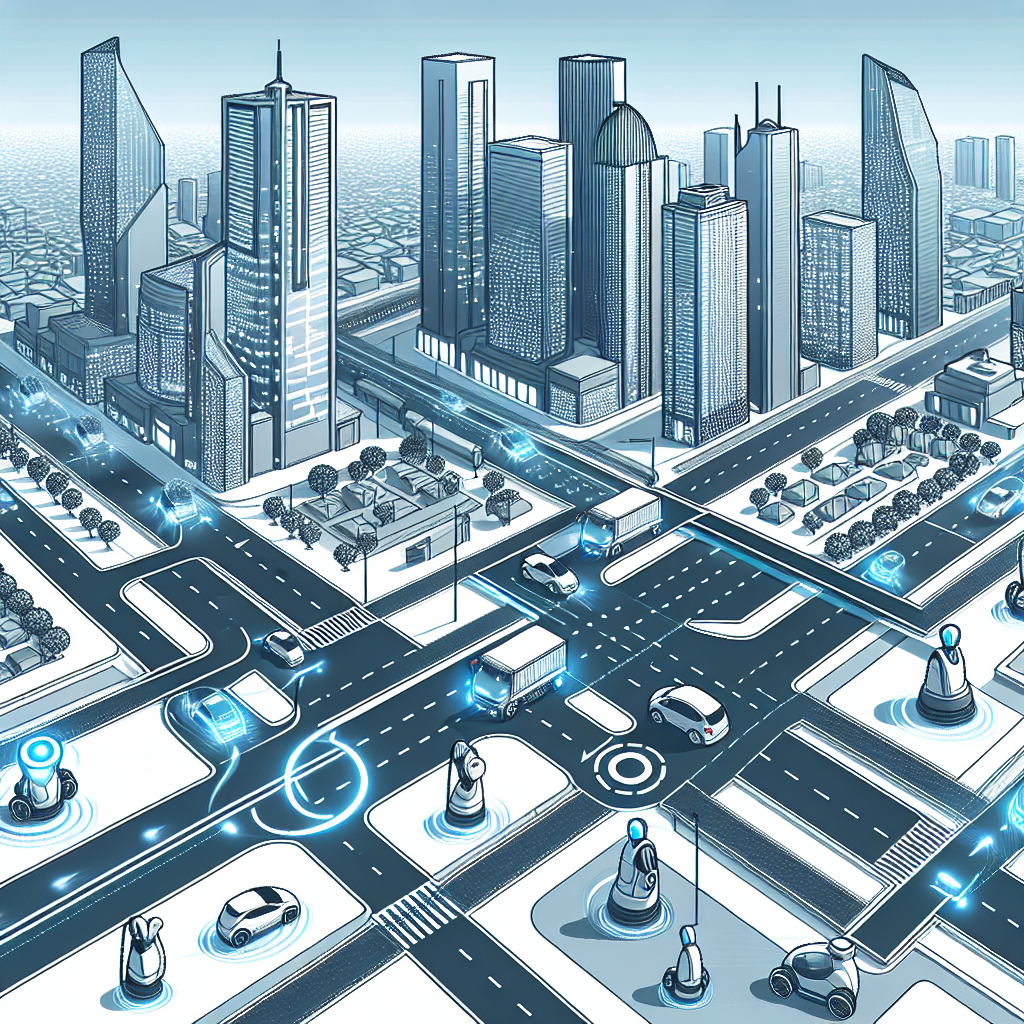The Legal Implications of AI in Autonomous Vehicles and Robotics
Artificial intelligence (AI) has revolutionized many industries, including transportation and manufacturing. In recent years, there has been a surge in the development and implementation of AI technology in autonomous vehicles and robotics. While these advancements have the potential to improve efficiency, safety, and productivity, they also raise a number of legal and ethical concerns.
One of the primary legal implications of AI in autonomous vehicles and robotics is liability. In traditional vehicles, the driver is typically responsible for any accidents or damages that occur. However, in autonomous vehicles, the AI system is in control of the vehicle, raising questions about who should be held responsible in the event of an accident. Should it be the manufacturer of the vehicle, the developer of the AI system, or the owner of the vehicle? This issue has yet to be fully resolved, and there is ongoing debate about how liability should be allocated in these cases.
Another legal concern related to AI in autonomous vehicles and robotics is data privacy. These systems collect and store vast amounts of data about their surroundings, users, and operations. This data can be highly sensitive and valuable, raising concerns about how it is stored, accessed, and used. There is a need for clear regulations and guidelines to ensure that this data is protected and used responsibly.
Additionally, there are ethical considerations surrounding AI in autonomous vehicles and robotics. For example, there have been concerns raised about the potential for bias in AI systems, which could lead to discriminatory outcomes. This is particularly concerning in the context of autonomous vehicles, where decisions about who to prioritize in the event of an accident could have life-or-death consequences. It is essential for developers and regulators to address these ethical concerns and ensure that AI systems are fair and unbiased.
In terms of regulations, many countries are still in the process of developing laws and guidelines specifically tailored to AI in autonomous vehicles and robotics. This is a complex and rapidly evolving field, and regulators are struggling to keep pace with the rapid advancements in technology. There is a need for clear and comprehensive regulations to ensure that AI systems are developed, implemented, and used in a safe and ethical manner.
Despite these challenges, there are also many potential benefits to AI in autonomous vehicles and robotics. For example, autonomous vehicles have the potential to significantly reduce the number of accidents on the road, as human error is a leading cause of crashes. Robotics can also improve efficiency and safety in manufacturing and other industries. By addressing the legal and ethical implications of AI in these technologies, we can unlock their full potential and create a safer and more efficient future.
FAQs
1. Who is liable in the event of an accident involving an autonomous vehicle?
The issue of liability in accidents involving autonomous vehicles is still being debated and is likely to vary depending on the circumstances of the accident. In many cases, the manufacturer of the vehicle or the developer of the AI system may be held responsible. However, the owner of the vehicle or the human operator at the time of the accident could also be liable. It is essential for regulators and legal experts to clarify these issues to ensure that victims of accidents involving autonomous vehicles receive proper compensation.
2. How can data privacy be protected in AI systems in autonomous vehicles and robotics?
Data privacy is a significant concern in AI systems in autonomous vehicles and robotics, as these systems collect and store vast amounts of sensitive data. To protect data privacy, developers and manufacturers must implement robust security measures to prevent unauthorized access to this data. Additionally, regulators should establish clear guidelines and regulations to ensure that this data is used responsibly and in accordance with privacy laws.
3. What are some potential ethical concerns related to AI in autonomous vehicles and robotics?
One of the primary ethical concerns related to AI in autonomous vehicles and robotics is the potential for bias in AI systems, which could lead to discriminatory outcomes. For example, if an autonomous vehicle is programmed to prioritize the safety of its occupants over pedestrians, this could raise concerns about fairness and equity. It is essential for developers and regulators to address these ethical concerns and ensure that AI systems are fair and unbiased.
4. What regulations are currently in place for AI in autonomous vehicles and robotics?
Many countries are still in the process of developing regulations specifically tailored to AI in autonomous vehicles and robotics. Some countries, such as the United States and the European Union, have issued guidelines and recommendations for the development and use of AI systems in these technologies. However, there is a need for more comprehensive and clear regulations to ensure that AI systems are developed, implemented, and used in a safe and ethical manner.

